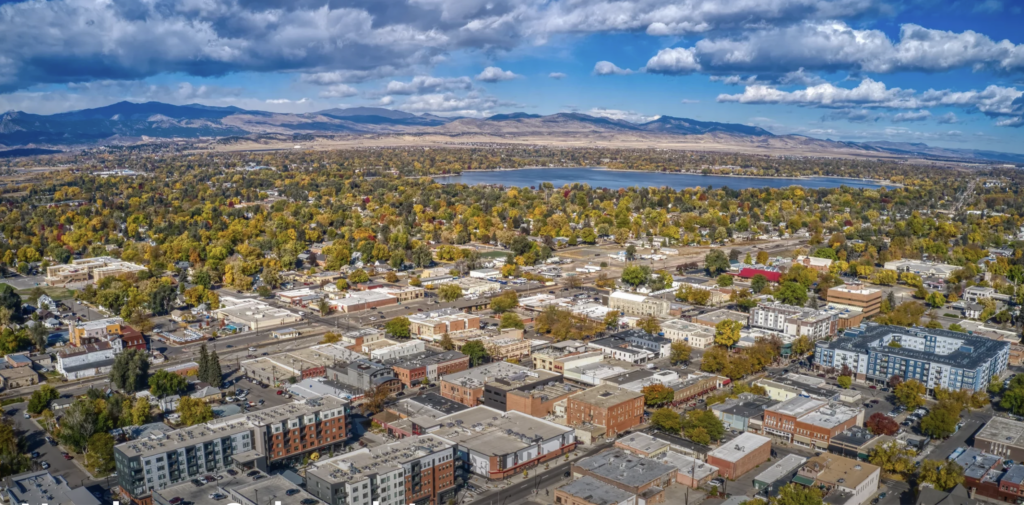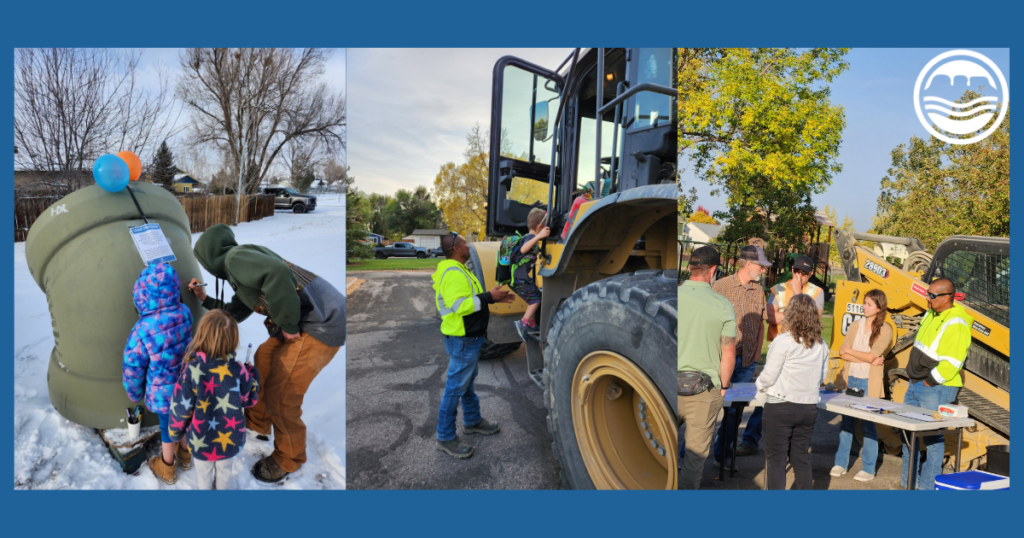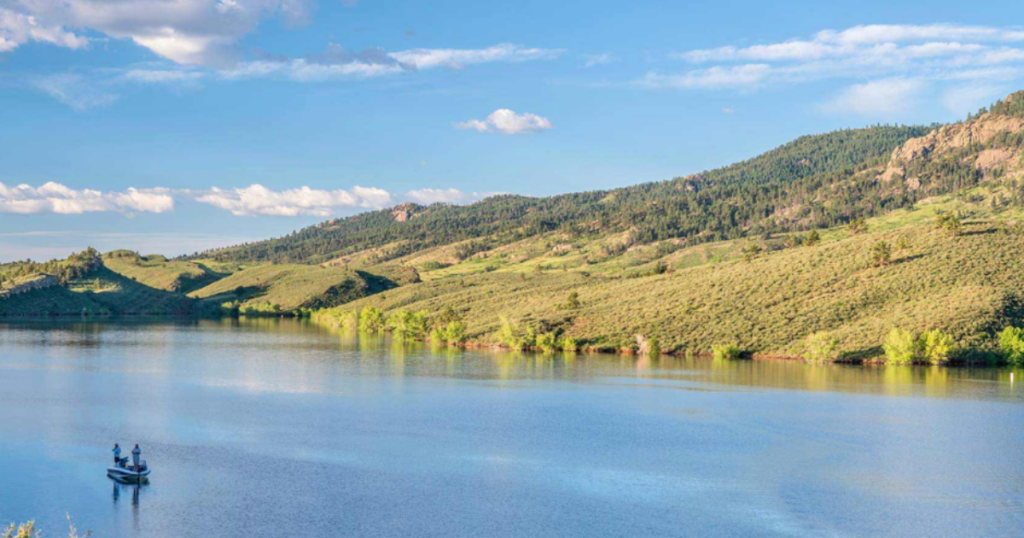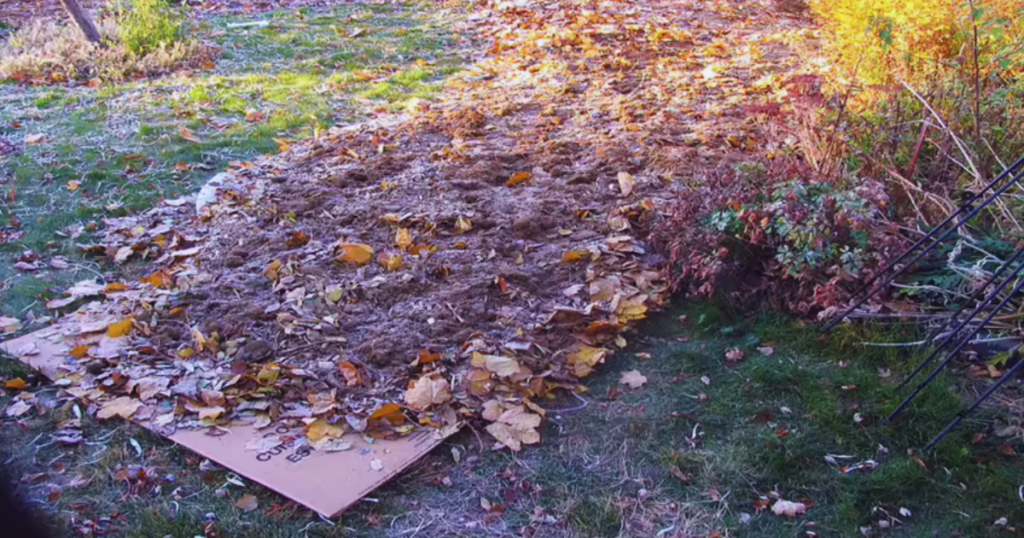Winter is the season of travel. From visiting family over the holidays to fleeing south to escape the cold, plenty of Coloradans will be flying out in the coming months. The fresh, pure water that the Fort Collins – Loveland Water District (FCLWD) supplies them, however, will keep being delivered to their homes unimpeded.
Normally, this shouldn’t be a problem—as long as all your fixtures and faucets are functional and fully shut off, no water should run through your pipes. Under certain circumstances, however—such as when you have a leak—water can continue to flow, causing a higher bill and potentially even property damage until the issue is addressed.
And, if you’re suntanning in Florida you might not be inclined to check in on the status of your water usage back home. You should, however, prepare yourself and your home before heading out for the season. In this blog, we’re covering some key steps you can take to ensure your house stays dry and your bill low as you enjoy your vacation.
What Can Happen to Your Home’s Water Supply While You’re on Vacation?
Whether you’re in Fort Collins or Fort Lauderdale, the FCLWD will continue to deliver water to your home unless you request to have your water completely shut off. But again, this typically isn’t an issue, as most homes are outfitted with intact, leak-free plumbing.
As pipes and fixtures age, however, it is possible for them to spring leaks. In fact, it’s happened to several of our customers—they come home from vacation to an unexpected leak and an unexpectedly large charge on their account.
No one likes higher-than-normal bills or wasted water. Luckily, the FCLWD has several ways to help you prevent both this winter.
The FCLWD’s Free Leak Detection Service
The best way to prevent unchecked water wastage while you’re away is to identify and stop leaks before they become an issue. We’ve made this easy with our free leak detection service, which can help you minimize waste and keep your bills low and predictable.
The service works by monitoring your usage and alerting us to any exceptionally high or low months over our thresholds. Excessive use is a key indication that water is constantly flowing—such as through holes in burst pipes or faltering faucets. While this tool is highly effective in catching unseen leaks, you can also keep an eye on your property by:
- Monitoring showerheads and taps for visible trickles
- Testing toilets by dropping some food coloring in the tank and seeing if it works its way into the bowl
- Replacing aging fixtures
- Checking for squishy spots on your lawn
- Looking over walls for signs of water damage, such as discoloration or bubbling
- Sniffing around for a musty odor
All of these can be indications that water is leaking somewhere on your property.
If a leak is coming from a FCLWD distribution line, we’ll repair it immediately. If it’s your own plumbing that’s the culprit, we’ll report it to you as soon as we learn about the issue so you can fix it as quickly as possible. Please remember, the District will not repair service lines on your property this service is purely designed to report leaks to you. Check out this visual guide to understand what is your responsibility to fix and maintain and what is the District’s responsibility.
Detecting and fixing leaks before heading out for vacation can save you stress, time, and money upon your return, so make sure to take advantage of this free service prior to packing your bags.
What Happens if We Detect a Leak While You’re Away?
If the District suspects a leak above our threshold, we’ll attempt to notify you via the fastest channel possible. Generally, that means contacting your phone and email right away. This, however, has proven difficult in the past when:
- Customers forget to update their FCLWD profiles with their latest information
- Vacationers aren’t at home to answer their phones
To ensure speedy contact, update your FCLWD online account, call us at (970) 226-3104 or email us at billing@fclwd.com to provide us with your latest email and cell phone info—even if you receive paper bills. If we’re unable to contact you via these channels in the event of a leak, we’ll drop a postcard in your mailbox warning you about the leak.
Helpful Tips For Homeowners and Housesitters
Oftentimes, homeowners will have their friends or relatives check in on their place while they’re away. This usually means collecting mail and making sure nothing looks awry from the outside.
While these are certainly useful steps, they won’t necessarily help your housesitter identify or detect potential leaks. For this reason, we also suggest:
- If you’re comfortable, ask your housesitter to thumb through mail to check for any FCLWD leak postcards
- Homeowners sign up for USPS Informed Delivery, a free service that scans your mail and sends you a daily email, so you’ll be able to see if you’ve received a postcard from us
- Housesitters do a walk-through of your property, checking for any leaks via the tips mentioned in this article
The sooner a leak is detected, the quicker it can be resolved, effectively minimizing wastage, property damage, and the size of your bill.
What to Do if You Spring a Leak While On Vacation
If you receive a notification from the FCLWD while you’re on vacation, or you otherwise suspect your plumbing is leaking, contact us immediately to request to have your water shut off. The District won’t shut off anyone’s supply without first establishing contact and ensuring it’s truly their request. The District will also not investigate or fix the fix the issue on your behalf.
Keep in mind that shutting off your water won’t fix the leak—you’ll still have to deal with the problem once you get back. However, your home and checking account will be in far better condition than if you had missed the problem altogether.
The FCLWD: Looking Out For Homeowners and Water Security in Northern Colorado
Fixing leaks doesn’t only protect your home and savings—it also protects our most valuable resource and helps ensure that there’s enough clean, drinkable water for future generations to come. Whether it’s addressing plumbing issues or monitoring your usage, there’s plenty homeowners can do this year in the name of conservation.
Our conservation page has more tips on conserving water to join us in our ongoing mission, and if you’re traveling this season, we wish you a safe and happy trip!
 Skip to content
Skip to content
